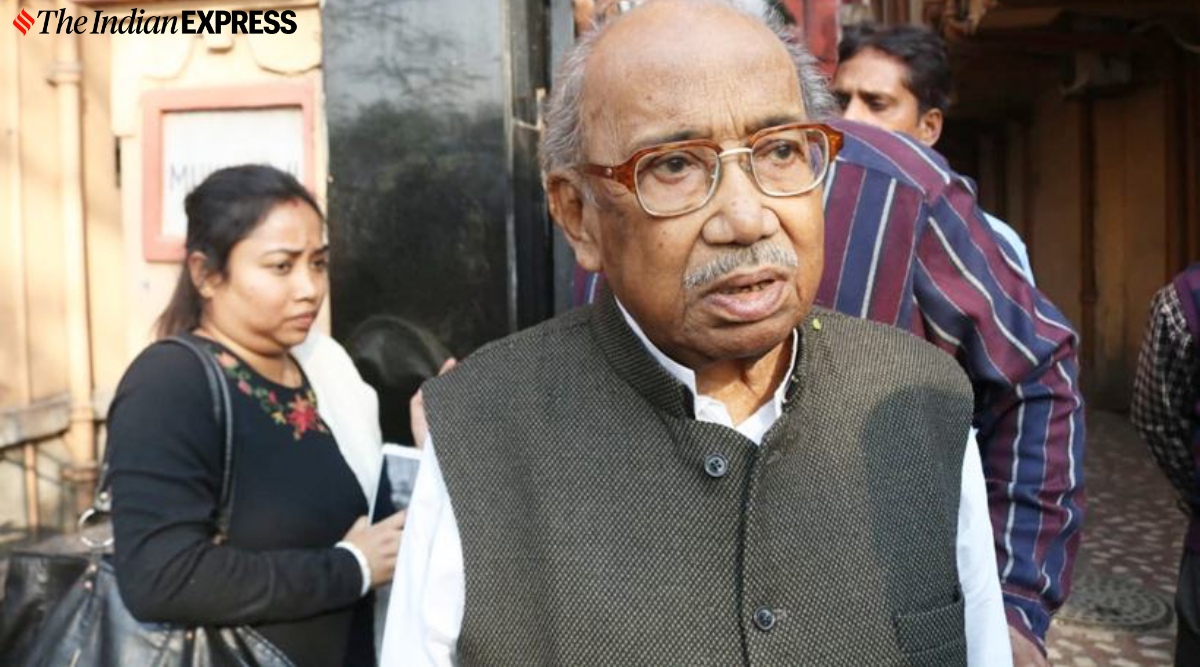Writer-director Tarun Majumdar holds a unique position in Indian cinema because he deftly blends the aesthetics of “art house” cinema with the tropes of mainstream fare to make films that entertain both the masses and die-hard audiences. With his death in SSKM hospital at 11.17am on Monday after a prolonged illness, cinema has lost a great storyteller who made many heartwarming family entertainers. He was 92.
Majumdar, a four-time National Award winner and Padma Shri recipient, was born on January 1, 1931 in Bogra (now Bangladesh). He was the son of a freedom fighter. He studied at the Scottish Church College in Calcutta and was known as an enthusiastic supporter of left-wing ideology. In a career spanning six decades, he directed nearly 40 films, including prominent ones include Balika Badhu (1967), Kuheli (1971), Ganadevata (1979), Dadar Kirti (1980), Bhalobasa Bhalobasa (1985) and Alo ( 2003). ).
“In Bengal, Majumdar represented what we know as middle class films. At the top were acclaimed directors like Satyajit Ray, Ritwik Ghatak and Mrinal Sen. Then there were those who made popular commercial films that used to be very good too. The space between these two currents of filmmaking has been occupied by directors such as Majumdar and Tapan Sinha. Audiences flocked to see Majumdar’s films. They left the theater with a sense of aesthetics and a certain kind of culturally rich ideas – which were often embedded in his films,” says actor Joy Sengupta, who became acquainted with Majumdar’s cinema Sriman Prithviraj (1973). The actor considers this to be “the best coming-of-age movie” he has ever seen as it combines the story of family dynamics with that of the independence movement.
Majumdar depicted rural life with warmth and celebrated their way of life. This is notable about Majumdar’s films, according to director Sagnik Chatterjee. “Majumdar told stories set in rural India with compassion and sophistication that resonated with audiences across sections. In fact, he’s made successful film after film on a variety of subjects without depending on stars,” said the creator of Feluda: 50 Years of Ray’s Detective. His films were also popular for their enduring characters and evergreen music.
Majumdar cast popular stars like Uttam Kumar and Suchitra Sen in only a few of his films, while working with then newcomers like Moushumi Chatterjee, Tapas Paul, Debashree Roy and Mahua Roychowdhury. Chatterjee, who ranks Sansar Seemantey (1975), Palatak (1963), Fuleswari (1974) among his favorite Majumdar films, finds “impressive the use of Rabindra Sangeet with a contemporary twist” in a number of his films.
What Sengupta found heartwarming in Majumdar’s films is the portrayal of his main characters, who often displayed a certain “innocence” while dealing with life. “His characters were rarely gross or negative. His films were full of happy, cheerful and good-natured characters. Nonetheless, his films made audiences think. That was his triumph,” says the Hazaar Chaurasi Ki Maa actor. Majumdar is known for its excellent film adaptations of classic literature by Tarasankar Bandyopadhyay, Saradindu Bandyopadhyay and Bimal Kar.











